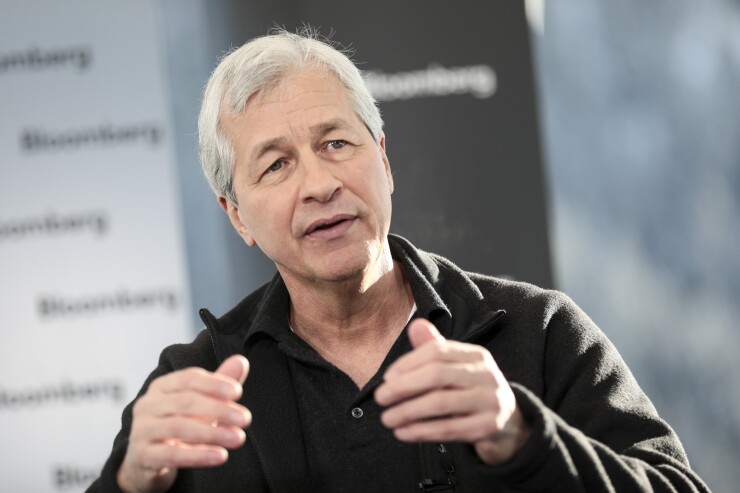Two weeks ago Jamie Dimon drew big headlines for his
Speaking to executives in Philadelphia, the site of JPMorgan Chase’s latest retail expansion effort, Dimon cautioned against calls for new regulatory regimes for large business enterprises. He did so by defending what he described as the inherent good in every company’s contribution to the economy. Yet, later, he challenged businesses to take a more enlightened (and less selfish) approach to their involvement in public policy matters.
His comments were spurred by a question about a plan by
“We do all of these things: We pay people well. We give them medical, dental, health care retirement — hell, we give them Pilates and massages if it makes them feel good,” Dimon said, declining to comment specifically on Warren, a fierce critic of the banking industry. “We retrain them if something goes wrong. We help their families. We’re hugely philanthropic.”

Dimon made the comments during a question-and-answer session at an event hosted by the World Affairs Council, a local business group. The conversation covered a host of topics, including trade policy, the state of the economy, climate change and crisis-era bank bailouts.
Even while praising the social role of big corporations, though, Dimon, who also serves as chairman of the Business Roundtable, an influential corporate lobbying group, criticized members the business community for being too “parochial” in their public policy priorities.
“You can’t always be pounding your chest about what’s good for us,” he said. “You see it with tax loopholes — including with carried interest, by the way — and it’s not good.”
The Business Roundtable, of course, was instrumental in pushing for the corporate tax cuts that were signed into law last December. The carried interest tax break —
At one point during the event, Dimon was interrupted by environmental protesters, who criticized the JPMorgan's financing of pipeline companies. After the protesters were escorted from the room by security, Dimon asked attendees — who were mostly local business executives — how many supported the Paris climate agreement; several raised their hand.
Dimon went on to say that the Paris agreement — which the protesters mentioned, and which has attracted widespread support from the business community — “lacked teeth" because it didn’t set formal restrictions on carbon emissions from major polluters in China and other countries. He urged the audience to consider a carbon tax instead.
“All of those people who want to do good for the environment, fight for that instead,” he said.
Dimon’s appearance in Philadelphia coincided with an announcement Monday morning that JPMorgan plans to add as many as
The expansion is part of JPMorgan’s plan,
During a follow-up interview after Dimon’s Q&A,
“Customers know the Chase brand, given that we have customers who already bank with us,” Duckett said.
JPMorgan currently holds about 9% of all deposits in the Philadelphia metropolitan area, according to the Federal Insurance Deposit Corp., placing it behind just two competitors: Capital One and TD Bank Group, which each control 25% of the region’s deposits.
Duckett said that JPMorgan is ready to step up and “earn the right” to compete for a bigger piece of the market. The company’s first branch is expected open later this year, in Philadelphia’s Rittenhouse Square neighborhood. About 20% of the company’s planned branches will be in low-income neighborhoods, according to Duckett.
“I think we’re going to differentiate ourselves by doing what we do best, which is making sure we have the best products and services,” Duckett said.





